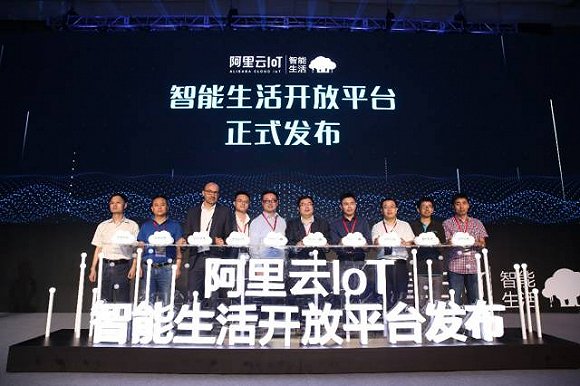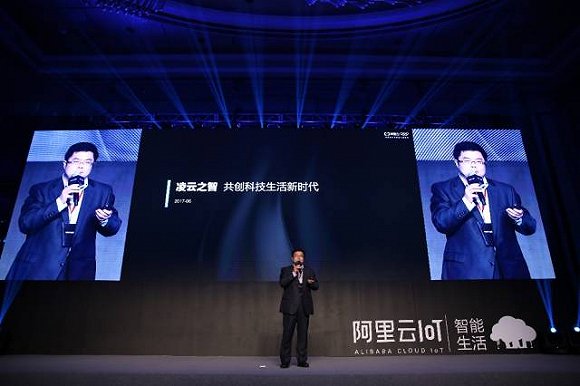OFweek smart home network news with major operators to launch 5G pilot base stations, Internet of Things (IoT) industry has entered the critical point of the outbreak. Haier, TCL, Changhong and other traditional home appliance manufacturers and millet, LeTV and other Internet companies are actively deploying an important application of Internet of things - "smart home market."
On June 28, Alibaba Cloud also announced that it will enter the smart home market, and its Alibaba Cloud IoT (Internet of Things) Business Unit will formally release the “Intelligent Living Open Platformâ€, which will provide a solution through connection, device management, and data analysis. The program helps partners realize the intelligentization of home devices at a low cost, thereby accelerating the availability and availability of smart home devices, enabling millions of families to experience the beauty of smart living.

According to the Prospective Industry Research Institute's “2015-2020 China Smart Home Appliance Industry Development Prospects Forecast and Investment Opportunity Analysis Reportâ€, the scale of China's smart home market reached 60.57 billion yuan in 2016. (Note: The results of different organizations' statistical calibers also differ. ), the year-on-year growth rate has also greatly increased to over 50%, and the industry has a rapid development momentum. There are 100 million smart home potential users in China. It is expected that the scale of smart home industry will exceed 1 trillion yuan in 2020. Among them, the hardware industry scale can reach 600 billion yuan, and the software industry scale is about 400 billion yuan.
According to AVC, by 2020, the penetration rate of smart TVs will reach 93%, and the penetration rate of intelligent washing machines, smart refrigerators and smart air conditioners will increase to 45%, 38% and 55%, respectively. The trend of smart homes will be irreversible. The potential market size of China's smart home industry is intriguing and is expected to become the next big thing in the market.
Due to the large market potential, traditional home appliance manufacturers and Internet companies are actively deploying and launching a series of products that label "intelligent". However, at present, smart home products have always lacked a unified service and application platform, and their application scenarios are very fragmented. Various devices cannot cooperate with each other. The market acceptance of products is not high, which seriously hampers the smart home to mature.
“This product launch aims to open Ali's years of smart home platform and service capabilities, and integrate the capabilities of many device manufacturers, ISVs, developers and service providers. The goal is to activate billion-level smart home devices and build a smart device. The complete ecology of life has accelerated the healthy development of the smart life industry,†said Ku Wei, general manager of Aliyun IoT Business Unit, at the press conference.

(The picture shows Alibaba Cloud IoT Division General Manager Ku Wei)
The four factions are differentLike Amazon, Apple, Google and so on, they all compete on the platform and system hub. Alibaba's “Intelligent Life Open Platform†also uses the open platform as a selling point. It intends to build an open ecology and realize the strategic goals of interconnection and home control centers. In order to consolidate more upstream and downstream supporters resources and consolidate their dominant position in the market.
Prior to June 10, "IoT Partner Program Conference 2017", Alibaba Cloud IoT has jointly announced the establishment of the IoT Partnership Alliance with nearly 200 IoT industry chain companies, aiming to establish and foster an open, interoperable and secure IoT industry ecosystem. Solve the problems that are currently plaguing the development of IoT - Fragmentation of scenarios makes it difficult for products and services to interoperate with each other, as well as security issues. We are committed to building standards and ecosystems using Internet thinking, breaking through existing technology standards, and inciting international standards to promote the entire IoT industry. development of.
According to reports released by the "China Information and Communication Research Institute and Tencent Research Institute AI Joint Course Group," the current domestic smart home market generally has four major factions.
1. Traditional home appliance manufacturers, represented by Midea, Haier, etc., have carried out intelligent transformation on their original products and launched related smart home appliances and platform products. For example, Haier launched the U+ smart living open platform. Rely on hardware revenue earnings.
2. Internet giants, such as BAT, have already deployed in hardware, software, services, and content areas, and have strengthened cooperation with traditional appliance manufacturers. For example, Tencent launched the Penguin Smart Community SaaS system, which will occupy smart home offline market and smart community market. At the same time, it will cooperate with companies such as Oruibo to outline the smart life; Ali Lianmei’s use of e-commerce channels and cloud service strengths will change the smart home ecosystem. pattern. This type of power as a whole presents a trend of cross-border integration, and the business model is also moving toward diversification.
3, excellent mobile phone hardware companies, such as Huawei, Xiaomi and so on. In 2015, Huawei announced its HiLink connection agreement to the smart home industry, and has been increasing the United States, telecommunications, etc. as partners, the core point for the interconnection and interoperability, to address the fragmentation of smart home. Such companies are usually well-positioned, clearly aware of their own strengths and weaknesses, and reasonably deploying smart home related products and services.
4, other such as operators, video sites and so on. Operators mainly rely on the advantages of network operations to deploy related hardware, software, and intelligent application products. The latter mainly use smart TVs as carriers to conduct business operations by charging content service fees.
According to reports, through the Ali cloud IoT "smart life open platform", partners can achieve low-cost intelligence, single-product equipment can be networked, devices can communicate with each other, work together to provide a complete scenario of intelligent services, such as Home mode, sleep mode, etc. Smart home manufacturers can also implement the upstream and downstream transmission and storage of product data through the platform, and can also manage the access process of smart devices on the platform, as well as management functions such as after-sales and data analysis. With Alibaba Cloud technology, the platform enhances the security of the Internet of Things and provides communications encryption, anti-network attacks, and high concurrent support capabilities.
It is reported that Alibaba Cloud's IoT platform has a stable access to equipment with a level of 100 million, high security and concurrent two-way communication capabilities, and provides security solutions. Such product characteristics can not only meet the company's expansion needs in the international and domestic markets, but also can deal with the dramatic increase in the number of enterprise hardware products.
As the giants entered the market, the smart home market ushered in the start-up period, paving the way for rapid growth. (This article is based on the integration of Tencent Research Institute, Alibaba's public information, etc., and part of the content is taken from the report released by "China Information and Communication Research Institute and Tencent Research Institute AI Joint Group").
A new rule from the Drug Enforcement Administration (DEA) threatens to upend the American hemp industry, and could even result in criminal prosecutions for manufacturers of CBD and delta-8 THC products.
The DEA says the [interim final rule," issued Aug. 20, is simply a matter of adjusting its own regulations to account for changes to the Controlled Substances Act that were mandated by the 2018 Farm Bill (or Agricultural Improvement Act) that legalized hemp and CBD production. The new rule [merely conforms DEA`s regulations to the statutory amendments to the CSA that have already taken effect," says the agency. The new rule doesn`t break any ground, according to the DEA.
But many experts on cannabis and hemp law say the DEA rule creates a potential pathway the law enforcement agency could use to prosecute hemp processors and producers of CBD (cannabidiol) and delta-8 THC (or Δ8THC) products. There are two issues: partially processed CBD, and [synthetically derived" delta-8 THC.
Cbd Pod System Oem,Cbd Vape Pod Oem,Best Cbd Pod System,Cbd Pod System
Shenzhen MASON VAP Technology Co., Ltd. , https://www.cbdvapefactory.com